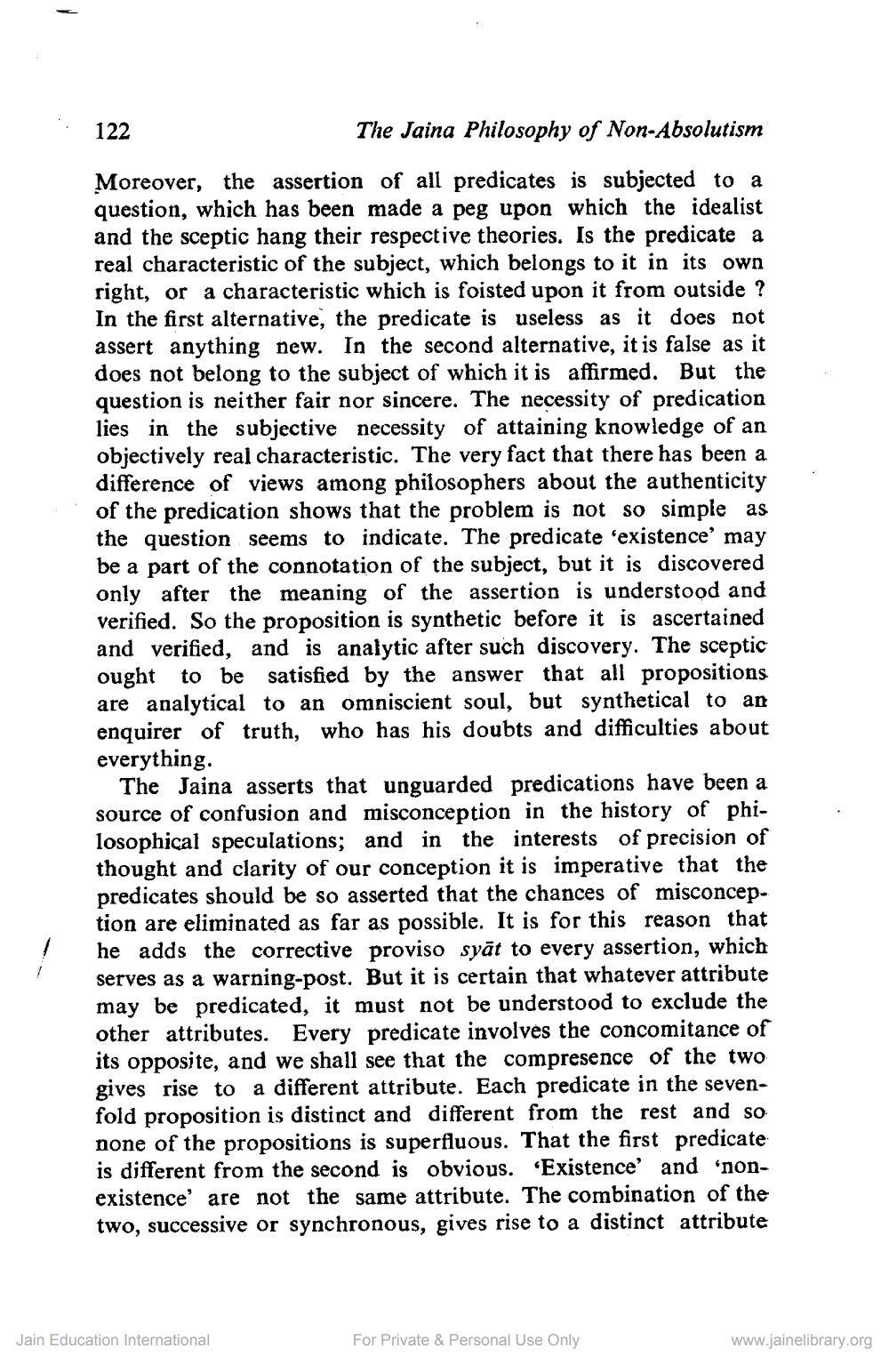________________
་
The Jaina Philosophy of Non-Absolutism
Moreover, the assertion of all predicates is subjected to a question, which has been made a peg upon which the idealist and the sceptic hang their respective theories. Is the predicate a real characteristic of the subject, which belongs to it in its own right, or a characteristic which is foisted upon it from outside ? In the first alternative, the predicate is useless as it does not assert anything new. In the second alternative, it is false as it does not belong to the subject of which it is affirmed. But the question is neither fair nor sincere. The necessity of predication lies in the subjective necessity of attaining knowledge of an objectively real characteristic. The very fact that there has been a difference of views among philosophers about the authenticity of the predication shows that the problem is not so simple as the question seems to indicate. The predicate 'existence' may be a part of the connotation of the subject, but it is discovered only after the meaning of the assertion is understood and verified. So the proposition is synthetic before it is ascertained and verified, and is analytic after such discovery. The sceptic ought to be satisfied by the answer that all propositions are analytical to an omniscient soul, but synthetical to an enquirer of truth, who has his doubts and difficulties about everything.
122
The Jaina asserts that unguarded predications have been a source of confusion and misconception in the history of philosophical speculations; and in the interests of precision of thought and clarity of our conception it is imperative that the predicates should be so asserted that the chances of misconception are eliminated as far as possible. It is for this reason that he adds the corrective proviso syat to every assertion, which serves as a warning-post. But it is certain that whatever attribute may be predicated, it must not be understood to exclude the other attributes. Every predicate involves the concomitance of its opposite, and we shall see that the compresence of the two gives rise to a different attribute. Each predicate in the sevenfold proposition is distinct and different from the rest and so none of the propositions is superfluous. That the first predicate is different from the second is obvious. 'Existence' and 'nonexistence' are not the same attribute. The combination of the two, successive or synchronous, gives rise to a distinct attribute
Jain Education International
For Private & Personal Use Only
www.jainelibrary.org




